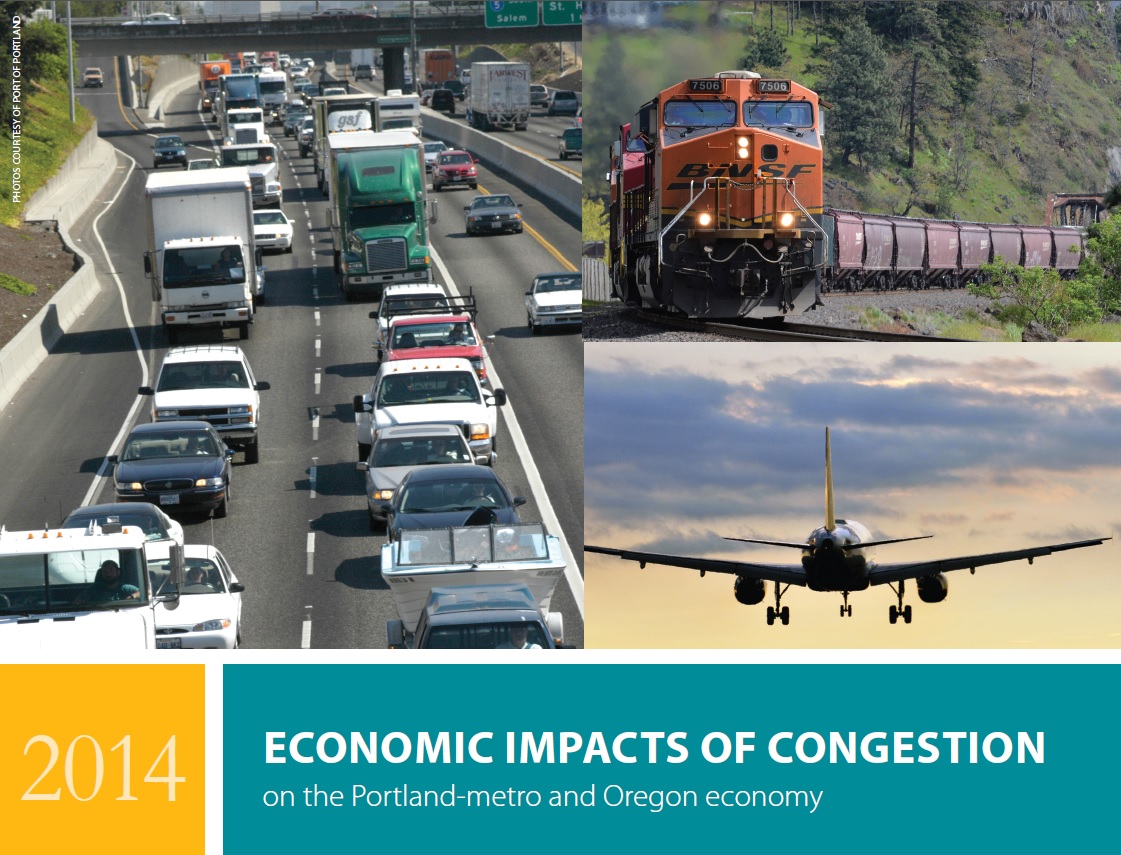Today a coalition of business and civic leaders released an update to a 2005 Cost of Congestion report, revealing that Oregon’s future economic competitiveness and job growth are heavily reliant on an efficient and reliable transportation system.
The 2015 report analyzes the state’s dependence on a reliable transportation system to move goods, ensure access to labor and increase productivity. It highlights that additional transportation investment is needed to maintain Oregon’s ability to remain competitive in a global economy.
“Oregon, including the Portland-metro area, is a sea and air gateway as well as a regional rail and highway hub, which uniquely situates us to be a major player in domestic and international trade,” said Bill Wyatt, executive director of the Port of Portland. “With so much of our state’s livelihood dependent on a robust transportation system, we have a tremendous opportunity and a responsibility to modern and competitive.”
This report identifies the current economic foundation of the state and examines how congestion and transportation barriers affect Oregon’s economy, jobs and productivity. It also analyzes the impact of increased transportation investment on the state’s economy and jobs. Key report findings include:
- Additional transportation investments would generate 8,300 jobs, $1.1 billion in benefits, and a $2.40 return for every $1 of investment, by 2040.
- More than 346,000 jobs were transportation-related and transportation-dependent in Oregon in 2013.
- $300 billion worth of goods moved in Oregon on all modes of transportation in 2012.
- By 2040, the average Portland-metro household will experience nearly 70 hours of congestion annually, equating to nearly two weeks of time spent sitting in traffic.
- $920 million of Oregon annual economic output/sales would generated by businesses as a result of an improved transportation system by 2040.
“Our state is heavily dependent on traded-sector industries, which provide well-paying jobs for Oregon’s residents,” said Sandra McDonough, president and CEO of the Portland Business Alliance. “In order to ensure this critical sector continues to grow, we need an efficient and reliable transportation system. We hope this analysis will signal to leaders the need for collaboration and funding at both state and federal levels to keep Oregon economically competitive.”
The report’s data and analysis were compiled by Economic Development Research Group for the Value of Jobs Coalition and was produced by the Portland Business Alliance. Coalition partners include Associated Oregon Industries, Greater Portland Inc., Oregon Business Association, Oregon Business Council, and Port of Portland. View the full report at valueofjobs.com/congestion_2014/.

